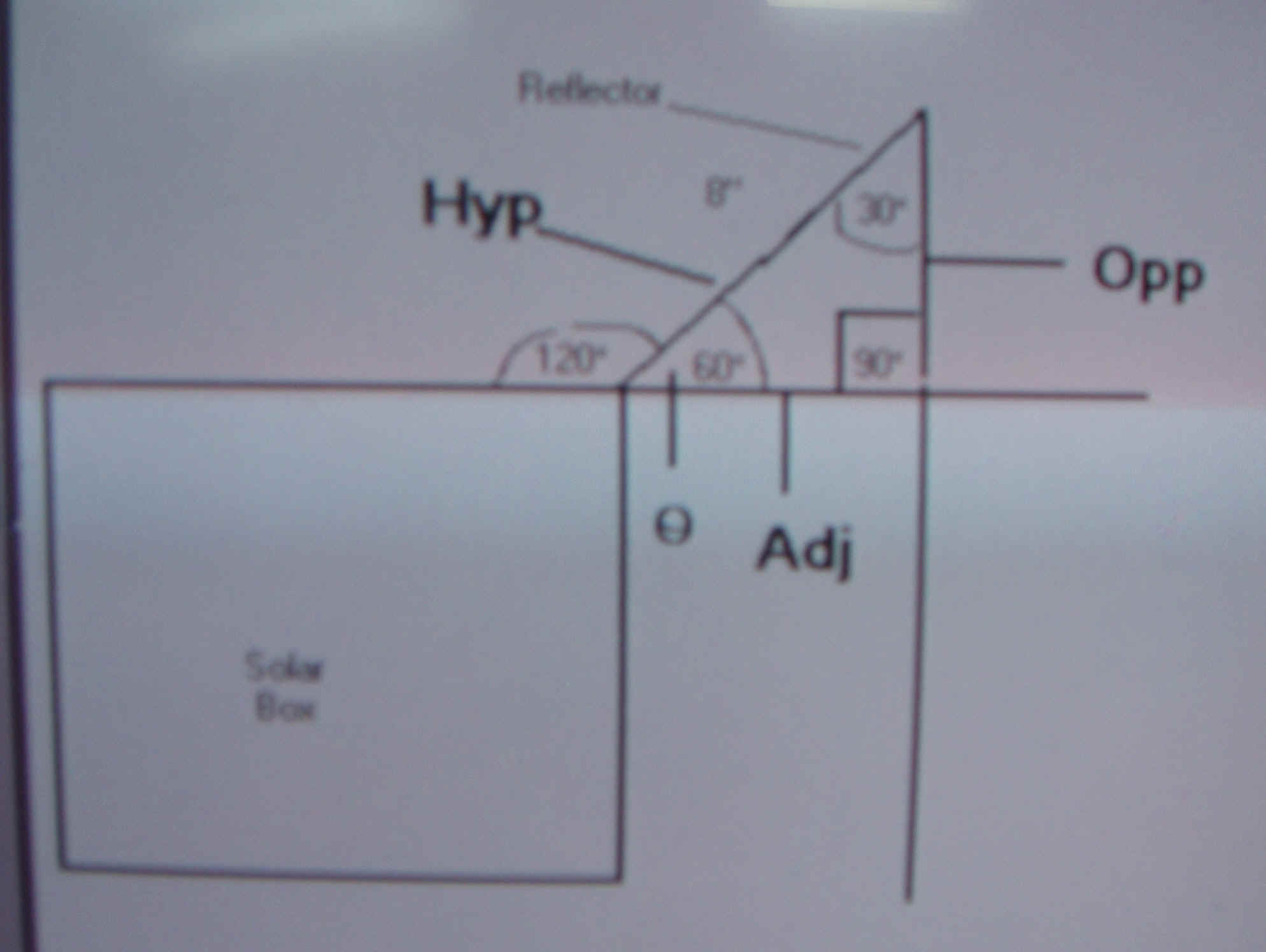
How much surface area do you gain with two reflectors?
-With no reflectors on our box, the glass surface area that radiation can penetrate is 12.5" x 12.5" = 156.25 sq. inches.
-Adding two 8" x 11.5" reflectors on the box, increases the amount of solar radiation entering the box. With reflectors, the surface area that radiation can penetrate is equivalent to having a 248.25 sq. inches piece of glass.
-To determine the amount of gain in surface area with reflectors the adjcent length (shown in the diagram below) needs to be determined. The adjcent length is also our reflectors┤ shadows when the sun is directly above.

-To find the adjcent length use:
Cos ě = Adj / Hyp
Adj = Hyp * Cos ě
Hyp = 8" and Cos ě = 60║
Adj = 4"
-Multiple the Adj length by the length of the reflector
(4" * 11.5" = 46 sq, inches)
-Multiple 46 sq. inches by 2 since there are two reflectors = 92 sq. inches.
-The total surface area for solar radiation to penetrate the box is...
92 sq. inches + 156.25 sq. inches = 248.25 sq. inches
-Increasing the surface area, increases the amount of solar radiation entering.
The equation below determines the amount of radiation entering our cooker.
q insol = Insol max * Area * Temp Change * Efficiency
We were curious as to how much power we were recieving from the sun per hour, as you know power = energy /time. To do this we had to use the following equation:
Q insol = Insol max * Area
Q insol = (317 btu/hr*ft sq.) * (ft sq./144 in. sq.) * (248.25 in sq.)
Q insol = 546.2 btu/hr